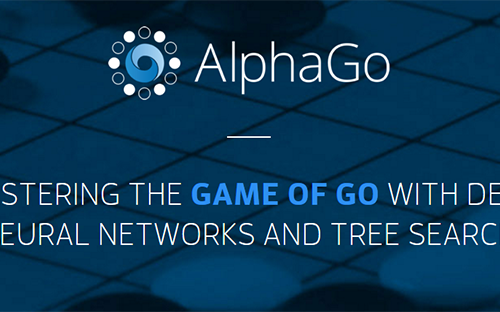Google’s AlphaGo artificial intelligence (AI) system proved today that the ancient Chinese game of Go is not too difficult for AI to crack.
No AI has ever been able to beat the world’s top Go pros until now, although AlphaGo did recently defeat European champ Fan Hui. A few hours ago, this same AI emerged victorious over Lee Sedol following a 3.5-hour game.
Sedol has been considered the top player in the world for the last decade and is known for his fast-moving and aggressive style. He appeared to have the upper hand at first before AlphaGo took an insurmountable lead, prompting Sedol to resign with about 30 minutes still remaining on his clock. Each player is given 2 hours and 30 minutes to make all of their moves.
Today’s game was part of Google’s DeepMind Challenge Match, which is a five-game challenge being held at the Four Seasons Hotel in Seoul. Four matches remain, and if Sedol wins three of them, he’ll walk home with a $1m prize. If AlphaGo takes the crown, the money will be donated by Google to UNICEF, Gocharities, and STEM. The remaining matches are set for Thursday, Saturday, Sunday, and next Tuesday.
Why AI has struggled with Go
The two-player game of black and white stones involves trying to “capture” your opponent’s stones on a 19×19 grid board. It is considered simpler than chess; a Go player normally has a choice of around 200 moves versus about 20 in chess.
AI has struggled in the past to master Go because of the high number of different combinations that are possible. In fact, Google says that the board has more possible configurations than the number of atoms that exist in the universe, so the task of calculating the possibilities in advance has been considered simply too monumental for AI.
How does the AI hone its skills? First, it looks at professional games and analyzes millions of moves made by humans to learn the general pattern and distinguish between good and bad moves. It then plays the game against itself millions of times, learning from its mistakes as it goes. A certain degree of intuition is involved, and until recently, experts believed it would be another decade before a machine would have the ability to beat the world’s top human players at Go.
The applications of this type of AI system are broad; it can be used to help humans in all sorts of decision making. For example, it could help doctors devise treatment plans that entail a number of complex variables.
Sedol made the first move
Ahead of the match, Sedol told the BBC: “Playing against a machine is very different from an actual human opponent. Normally, you can sense your opponent’s breathing, their energy. And lots of times you make decisions which are dependent on the physical reactions of the person you’re playing against. With a machine, you can’t do that.”
The game was played in a closed room with several officials present. Aja Huang, a DeepMind researcher who operates AlphaGo, made the moves on the machine’s behalf. The press was able to watch from one of two commentary rooms.
AlphaGo played white and Sedol played black, which gave him the first move. He took an aggressive opening. AlphaGo’s approach is considered more balanced, but it did not back away from the strong fight Sedol put up.






